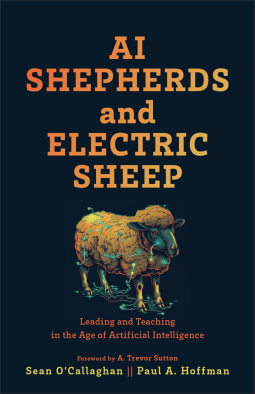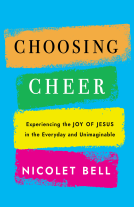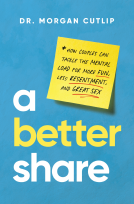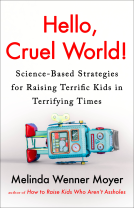AI Shepherds and Electric Sheep
Leading and Teaching in the Age of Artificial Intelligence
by Sean O'Callaghan; Paul A. Hoffman
You must sign in to see if this title is available for request. Sign In or Register Now
Send NetGalley books directly to your Kindle or Kindle app
1
To read on a Kindle or Kindle app, please add kindle@netgalley.com as an approved email address to receive files in your Amazon account. Click here for step-by-step instructions.
2
Also find your Kindle email address within your Amazon account, and enter it here.
Pub Date Mar 18 2025 | Archive Date Apr 30 2025
Baker Academic & Brazos Press | Baker Academic
Talking about this book? Use #AIShepherdsandElectricSheep #NetGalley. More hashtag tips!
Description
In this accessible introduction to AI, Sean O'Callaghan and Paul Hoffman explore its social and ethical impacts for ministry and teaching. The authors shed light on the biblical vision for human flourishing--and on how AI can help or hinder that flourishing. Avoiding both alarmism and uncritical acceptance, O'Callaghan and Hoffman offer resources and practical tools for using AI in our classrooms and congregations.
AI can write a generic three-point sermon, but it cannot replace an authentic encounter between humans and the divine. In a time of cultural confusion, O'Callaghan and Hoffman encourage readers to embrace the clarity found in the gospel. The book includes a foreword by A. Trevor Sutton.
Advance Praise
“When it comes to AI, this book deletes the algorithms of both alarmist and utopian thinking. The authors combine deep insights about both theology and technology, all with a heart no machine can replicate. Whether the prospect of artificial intelligence exhilarates you or terrifies you, this book will make you think.”—Russell Moore, editor in chief, Christianity Today
“Artificial intelligence is something I never envisioned would be a universal topic in the church or in theological education. Thankfully, in this significant work O’Callaghan and Hoffman guide Christian leaders biblically, theologically, and practically on this life-altering development called AI. While we do not know what the future holds in this digital world, we do know the One who holds the future. AI Shepherds and Electric Sheep is a well-researched and pioneering book that gives us a clear road map to begin understanding and navigating this ever-changing technological age.”—Matthew D. Kim, professor of preaching and pastoral leadership, George W. Truett Endowed Chair of Preaching and Evangelism, Truett Theological Seminary, Baylor University; author of Preaching with Cultural Intelligence
“The hype surrounding AI, fueled by science fiction and film, has spread through social media and shaped our understanding of this emerging technology. While all this attention reflects the enthusiasm many people hold for AI, it has sparked fears and concerns as well. How can Christians respond to both the hype and the fear? O’Callaghan and Hoffman’s meticulous work presents us with a biblical-theological framework for addressing the challenges AI poses to communities, education, church ministry, the meaning of being human, and moral practices. This book cogently explains why AI should not be rejected outright and how it can be critically engaged and received with thanksgiving.”—Ximian Xu, Duncan Forrester Fellow, University of Edinburgh
“Working through the lens of the biblical story, O’Callaghan and Hoffman sketch a Christian approach to AI that is theologically informed, philosophically thoughtful, and yet eminently practical. A clear, wise, and timely resource, with particular relevance for educators and pastors.”—Derek C. Schuurman, professor of computer science, Calvin University
Available Editions
| EDITION | Other Format |
| ISBN | 9781540968012 |
| PRICE | $24.99 (USD) |
| PAGES | 208 |
Available on NetGalley
Featured Reviews
 Reviewer 1168388
Reviewer 1168388
This is a thoughtful, thorough resource for Christians considering how to engage with AI. The authors do not take an extreme side whether Christians should or should not use AI; instead, they argue that if we engage with AI, we should do so with thought and care.
Even though this book approaches AI from a Christian perspective (the first I’ve seen to do so), the first part of the book is a great resource for anyone seeking to understand AI. The authors explain the history and different types of AI. Additionally, they discuss the implications of AI - benefits AND drawbacks - in a variety of fields. I am impressed with how many areas of life they explore, from medicine to media to missions (and more).
When the authors deepen their exploration of AI from a Christian perspective, I find their assertion uniquely thoughtful and convincing. They argue that humanity should be valued (over AI) as God’s special, beloved creation, designed for reasoning and relationship - even if we don’t do either perfectly. This certainly applies to discipleship relationships.
Additionally, as an educator, I find Chapter 5 especially useful, particularly its assertion that deep reading like lectio divina can be done with any text.
Overall, I highly recommend this book. It is well-written and well-researched, highly informative while remaining accessible (including fun pop culture references).
Though this is a relatively short text, I know I will return to it often; it is a rich resource with a lot of ideas to consider and further explore. I appreciate that there are reflection questions at the end of each chapter. The topic of AI certainly merits a lot of reflection, and that’s something AI can’t do for us.
Thank you to NetGalley and Baker for the free eARC. I post this review with my honest opinions.
 Jennie W, Reviewer
Jennie W, Reviewer
This new and upcoming book release, AI Shepherds and Electric Sheep – Leading and Teaching in the Age of Artificial Intelligence by Sean O’Callaghan; Paul A. Hoffman covers explaining what AI (artificial intelligence) is, the history of it, how it is being used, and the future of AI. Along with the pros and cons from a biblical perspective. I personally learned a lot! I recommend everyone read this or least start researching this information yourself.
The book is set up with a summary and questions at the end of each chapter, making it a great book to use in a book study group or to discuss with others. The first part of the book goes into explaining what AI is and the potential risks, along with how it is currently being used. Some of this is very worrisome, and it is beneficial for us to be aware of it so that we can be prepared and learn how to use it as Christians. The chapters on How Should Christians Be Formed and Discipled in the Age of AI & How Should Ministry Leaders Approach AI is something all churches should read and discuss.
Here are a few of my highlights I took while I read:
Artificial intelligence, with its far-reaching impacts, isn’t going away, and it will challenge us…
Sometimes, we won’t even be aware that it is running our lives, our surroundings, in the background.
AI can unearth new drugs that heal and unearth drugs that destroy human life on a massive scale.
The consumption of resources required to construct AI is altering landscapes across the globe.
Everything-including humans and all forms of technology – exists for His purposes and glory and should align with His revealed character and Word.
Humans must not over-rely on machine learning. If they do, they are in danger…
AI has the potential to make humans less human. At the same time, AI has the potential to help humans…
Technology is not neutral. It is value laden; it leads us in certain directions, and it prompts us to do or use this instead of that.
AI can develop psychological tricks to gain trust and influence, reading and manipulating our emotions and behaviors with a frightening level of depth…
One estimate is that by 2026, up to 90% of what we see on our screens will be the product of generative AI.
No space if free of AI generated noise.
We risk losing the ability to think deliberately.
How do we prepare our congregations, students, and ministers to flourish and teach others how to flourish in a world that is saturated with AI?
An Advanced Review Copy was provided by the publisher in Exchange for a review.
In the realm of AI, where we're pushing the boundaries of what machines can do, "AI Shepherds and Electric Sheep" by Sean O'Callaghan is like a roadmap through the uncharted territory of integrating AI into education and ministry.
Content:
This book dives deep into how AI can revolutionize teaching and preaching. O'Callaghan isn’t just talking about replacing jobs but enhancing human creativity and spiritual connection. Here's what he says:
"Machines can now take on work once thought to be solely the domain of human beings—from writing college essays to composing worship music."
This is the kind of disruption we need, not to sideline humans but to amplify our capabilities.
"AI can write a generic three-point sermon, but it cannot replace an authentic encounter between humans and the divine."
True, AI might not capture the soul of human interaction, but it's a tool for those moments when inspiration needs a boost.
"Avoiding both alarmism and uncritical acceptance, O'Callaghan and Hoffman offer resources and practical tools for using AI in our classrooms and congregations."
This balanced view is crucial; we must navigate AI's potential with wisdom, not fear or blind faith.
"The authors shed light on the biblical vision for human flourishing—and on how AI can help or hinder that flourishing."
It's about understanding the dual-edged sword of technology; we must use it to elevate human life, not diminish it.
"In a time of cultural confusion, O'Callaghan and Hoffman encourage readers to embrace the clarity found in the gospel."
Clarity in our confused times is what we're all after, isn't it? AI might help us navigate, but the compass remains human.
Ratings Breakdown:
Innovation: 8/10 - The book doesn't just talk AI; it explores how it can be woven into the very fabric of teaching and spiritual guidance, which is pretty groundbreaking.
Practicality: 7/10 - It provides actionable insights, though I'd love to see more on how to implement these in diverse educational environments.
Depth of Analysis: 9/10 - O'Callaghan goes beyond surface-level discussion, diving into ethical implications, which is essential for any tech adoption.
Optimism vs. Realism: 8/10 - Strikes a good balance, offering hope without ignoring the pitfalls.
Inspirational Value: 7/10 - While it's not going to make you jump out of your seat, it does light a path for thoughtful integration of AI in human-centric fields.
Conclusion:
"AI Shepherds and Electric Sheep" isn't just another book on AI; it's a manual for those of us who see AI not as a replacement but as an augmentation to human endeavor in education and beyond. O'Callaghan provides a vision where AI can be the shepherd, guiding us towards new possibilities while reminding us of our uniquely human qualities.
"We're at a pivotal moment where we can decide if AI will be a tool for human enlightenment or a mere echo of our own voices. This book is a guide map for choosing the former."
If you're in education or ministry, or just passionate about the intersection of technology and humanity, this book is worth your time. It’s a call to action to use AI wisely and with purpose, ensuring that in our pursuit of progress, we don't forget what makes us human
 E R "Eric" B, Reviewer
E R "Eric" B, Reviewer
AI Shepherds and Electric Sheep offers an accessible introduction to artificial intelligence for a lay audience, focusing heavily on its implications for Christians. The book is structured with clarity, featuring summaries and discussion questions at the end of each chapter, making it a practical resource for church book studies or small group discussions. It delves into the basics of AI technology, its history, current applications, and its potential risks—all filtered through a biblical lens.
While the book is effective at explaining AI to newcomers, its insistence on interpreting the subject through Christian theology limits its universal appeal. This approach can feel, at times, like efforts to connect astrology to astronomy—there may be shared data points, but the moral framework tied to Christianity narrows the scope of its insights. The moralizing tone and exclusive connection to Christian faith make it harder to resonate with readers who approach AI from global, secular, or interfaith perspectives.
The chapters on Christian formation and ministry leadership in the age of AI offer thoughtful prompts for believers navigating this new technological landscape. However, by focusing so singularly on Christian audiences, the authors miss an opportunity to contribute ideas that could inspire a broader, more universal dialogue about ethical AI practices. Instead of fostering globally relevant conversations, the book seems designed primarily to reassure Christians about integrating AI into their worldview.
On the positive side, the book succeeds in raising awareness about the risks and benefits of AI, and it encourages readers to think critically about its role in their lives. For Christians, it may serve as a starting point for grappling with these issues. However, readers looking for a more comprehensive or globally inclusive exploration of AI ethics might find this book too narrowly focused.
Readers who liked this book also liked:
Gina Senarighi PhD, CPC
Parenting & Families, Self-Help



















